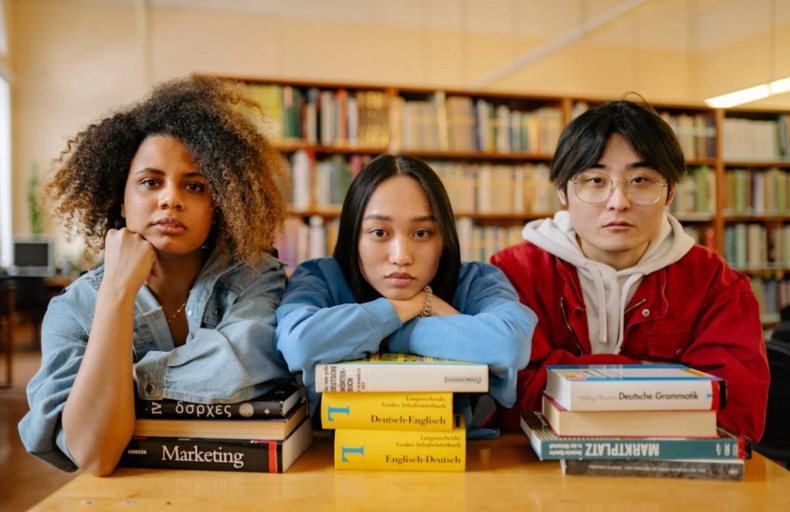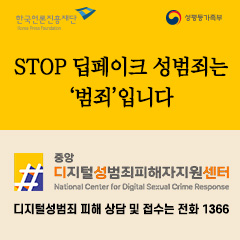
The South Korean government is revising its immigration policies to allow foreign youths—such as second-generation immigrants—who have completed primary, middle, and high school in Korea to switch to work visas and continue residing with their families in the country, even if they do not pursue higher education.
Additionally, the government will extend the "Status of stay to be granted to foreign children staying in Korea for a long term to guarantee their right to education" originally set to end on March 31, for another three years until March 31, 2028.
The Ministry of Justice announced these measures on March 21, outlining policies to extend educational rights and provide employment and settlement opportunities for "foreign youths raised in Korea."
As a follow-up to its new immigration policy framework announced on September 26 last year, the ministry has opened a path for foreign youths with roots in Korea to seek employment and settle after high school graduation, even if they do not attend university.
Previously, foreign youths who reached adulthood were required to possess a bachelor's degree or have at least five years of work experience to obtain an employment visa (E-7) for specific activities.
As a result, even youths raised in Korea faced significant barriers to employment and settlement unless they enrolled in a university under the D-2 (student) visa program.
Starting April 1, the revised policy will allow foreign youths who graduated from Korean primary, middle, and high schools to plan for their futures without needing to enroll in
The South Korean government is revising its immigration policies to allow foreign youths—such as second-generation immigrants—who have completed primary, middle, and high school in Korea to switch to work visas and continue residing with their families in the country, even if they do not pursue higher education.
Additionally, the government will extend the "Status of stay to be granted to foreign children staying in Korea for a long term to guarantee their right to education" originally set to end on March 31, for another three years until March 31, 2028.
The Ministry of Justice announced these measures on March 21, outlining policies to extend educational rights and provide employment and settlement opportunities for "foreign youths raised in Korea."
As a follow-up to its new immigration policy framework announced on September 26 last year, the ministry has opened a path for foreign youths with roots in Korea to seek employment and settle after high school graduation, even if they do not attend university.
Previously, foreign youths who reached adulthood were required to possess a bachelor's degree or have at least five years of work experience to obtain an employment visa (E-7) for specific activities.
As a result, even youths raised in Korea faced significant barriers to employment and settlement unless they enrolled in a university under the D-2 (student) visa program.
Starting April 1, the revised policy will allow foreign youths who graduated from Korean primary, middle, and high schools to plan for their futures without needing to enroll in university.
Specifically, those aged 18 to 24 who have resided in Korea for more than seven years before turning 18 and graduated from Korean schools will be eligible for D-10 (job-seeking) or E-7-Y (employment) visa statuses.
Those who did not complete all three levels of schooling will also be eligible for the same benefits if they complete level 5 of the Social Integration Program.
Separately, the Ministry of Justice will extend the “tatus of stay to be granted to foreign children staying in Korea for a long term to guarantee their right to education” until March 31, 2028.
This program has granted legal status to children residing in Korea without valid visas but attending school, helping to ensure their right to education and integration into Korean society.
Initially introduced on April 19, 2021, the program targeted children born in Korea who had lived in the country for over 15 years. In February 2022, it was expanded to include children born abroad and those who had resided in Korea for six to seven years, significantly broadening eligibility.
A total of 2,713 individuals have been granted legal status under the program so far—1,205 children and 1,508 parents.
To improve the program based on identified issues and feedback from the Ministry of Education and human rights groups, several measures have been introduced.
Under the revised plan, minor siblings of eligible children will also receive G-1 visas to ensure family stability.
Parents must participate in social integration education programs to reinforce their responsibility in raising and educating their children.
Parents who do not actually reside with or care for the child in Korea will be excluded from the application process to prevent abuse of the system.
(한국어 번역)
정부가 이민 2세대 등 외국인 청소년이 국내 초·중·고교를 졸업한 뒤 대학에 진학하지 않더라도 취업비자로 전환해 국내 가족과 계속 거주할 수 있도록 제도를 개선한다.
또한 3월 31일 종료되는 '국내 장기체류 아동 교육권 보장을 위한 체류자격 부여 방안'을 2028년 3월 31일까지 3년 연장한다.
법무부는 21일 이 같은 내용을 담은 '국내 성장 기반 외국인 청소년'에 대한 교육권 보장 연장과 취업·정주 방안을 발표했다.
먼저 법무부는 지난해 9월 26일 발표한 신(新)출입국·이민정책 후속 조치로 국내 성장 기반을 가지고 있는 외국인 청소년에 대해 대학에 진학하지 않아도 고등학교 졸업 후 취업·정주할 수 있도록 길을 열었다.
그동안 성년이 된 외국인 청소년이 특정활동(E-7) 등 취업자격을 취득하려면 학사학위 또는 5년 이상의 경력이 필요했다.
따라서 국내에서 성장한 외국인 청소년이라도 성년 이후 대학에 진학해 유학(D-2) 과정을 거치지 않고서는 실질적으로 국내 취업과 정주가 어려웠다.
이에 법무부는 내달 1일부터 국내 초·중·고교를 졸업한 외국인 청소년에게는 대학에 진학하지 않더라도 각각의 여건에 맞게 미래를 설계할 수 있도록 제도를 개선했다.
우선 신청일 기준 18세 이상 24세 이하이고 18세가 되기 전 7년 이상 국내에서 체류했으며 국내에서 초·중·고교를 졸업한 경우에는 구직·연수(D-10), 취업(E-7-Y) 자격으로 체류를 허용한다.
다만, 초·중·고 과정 중 어느 하나의 과정을 졸업하지 못한 사람에 대해서는 사회통합프로그램 5단계 과정을 이수하면 동일한 혜택을 부여하기로 했다.
한편, 법무부는 기존의 '국내 장기체류 아동 교육권 보장을 위한 체류자격 부여 방안'을 오는 2028년 3월 31일까지 3년 연장 운영한다.
그동안 법무부는 국내 체류자격 없이 체류하며 학교에 재학 중인 외국인 아동들의 교육권을 폭넓게 보장하고 이들이 우리 사회의 구성원으로 더불어 살아갈 수 있도록 아동과 그의 부모에게 체류자격을 부여했다.
지난 2021년 4월 19일 최초 시행 당시 국내 출생 후 15년 이상 국내 체류한 아동을 대상으로 합법적 체류자격을 부여했고 2022년 2월 1일부터는 외국에서 출생해 입국한 아동도 포함해 국내 체류 기간 요건도 6년 또는 7년 이상으로 완화해 대상을 대폭 확대한 바 있다.
이에 따라 총 2713명에게 체류자격을 부여했고 그중 아동은 1205명, 부모는 1508명이었다.
법무부는 그동안 제도 운영상 나타난 문제점과 교육부, 인권단체 등을 통해 수렴된 의견을 검토해 개선방안을 마련했다.
요건을 충족한 아동에게 체류자격을 부여할 때 해당 아동의 미성년 형제자매에게 체류자격(G-1)을 동시에 부여해 안정적 가족생활을 보장한다.
해당 부모가 자녀의 교육과 양육을 등한시하지 않도록 사회통합 교육 등에 참여하는 조건을 부과해 아동에 대한 책임성을 높인다.
국내에서 아동을 실제 보호·양육하지 않은 부모는 신청 대상에서 제외해 제도 악용을 방지한다.

